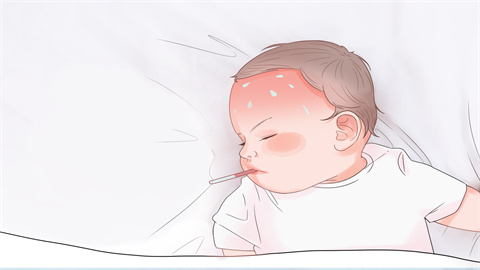How to manage a child's cold with hot hands and feet
Generally, when a child has a cold, hot hands and feet may be caused by reasons such as imbalance of the body temperature regulation mechanism, increased metabolism, pneumonia, myocarditis, rheumatic fever, and others. Treatment options such as general care and medication can be adopted under a doctor's guidance. Detailed explanations are as follows:

1. Temperature Regulation Mechanism
When a child catches a cold, the body's temperature regulation center may be affected, leading to an imbalance in the temperature regulation mechanism. As one of the main areas for heat dissipation, the hands and feet may display increased temperature due to mechanisms such as vasodilation when body temperature rises. It is important to maintain a suitable indoor temperature and humidity to prevent the child from getting chilled. Additionally, enhancing the child's physical condition and improving resistance can help reduce the occurrence of colds.
2. Increased Metabolism
Duing a cold, a child's metabolic rate may increase to cope with the challenges of pathogens and inflammation. This increased metabolism results in more heat production in the body, which may manifest as hot hands and feet. A balanced diet with adequate nutritional support is recommended, while excessive fatigue should be avoided to ensure the child has sufficient rest and recovery time.
3. Pneumonia
Pneumonia is often caused by pathogens such as bacteria, viruses, or mycoplasma, and usually develops from an upper respiratory tract infection spreading downward. It may cause an intensified inflammatory response in the body, elevated body temperature, and thus hot hands and feet. It may also cause symptoms such as coughing and sputum production. Patients can take medications such as Penicillin V Potassium Tablets, Dextromethorphan Hydrobromide Syrup, Azithromycin for oral suspension, etc., as advised by a doctor.
4. Myocarditis
Myocarditis is usually caused by viral infections, such as Coxsackievirus, which can invade and inflame the heart muscle cells. Under the stimulation of inflammation, cardiac function may be impaired, blood circulation may become impaired, thereby causing elevated body temperature and hot hands and feet. Symptoms such as palpitations and chest pain may also occur. Patients may follow medical advice to use medications such as Acyclovir Injection, Disodium Glycero Phosphate Injection, Furosemide Injection, etc., for treatment.
5. Rheumatic Fever
Rheumatic fever is mainly caused by a systemic connective tissue inflammation following infection with group A beta-hemolytic streptococcus. When the systemic inflammatory response intensifies, body temperature rises, leading to hot hands and feet. It may also cause symptoms such as redness and pain in the joints. Patients can take medications such as Prednisone Acetate Tablets, Aspirin Enteric-coated Tablets, Cyclophosphamide Tablets, etc., under a doctor's recommendation.
It is important to keep indoor air fresh, wash hands frequently, avoid close contact between the child and individuals with colds, and reduce opportunities for infection.




